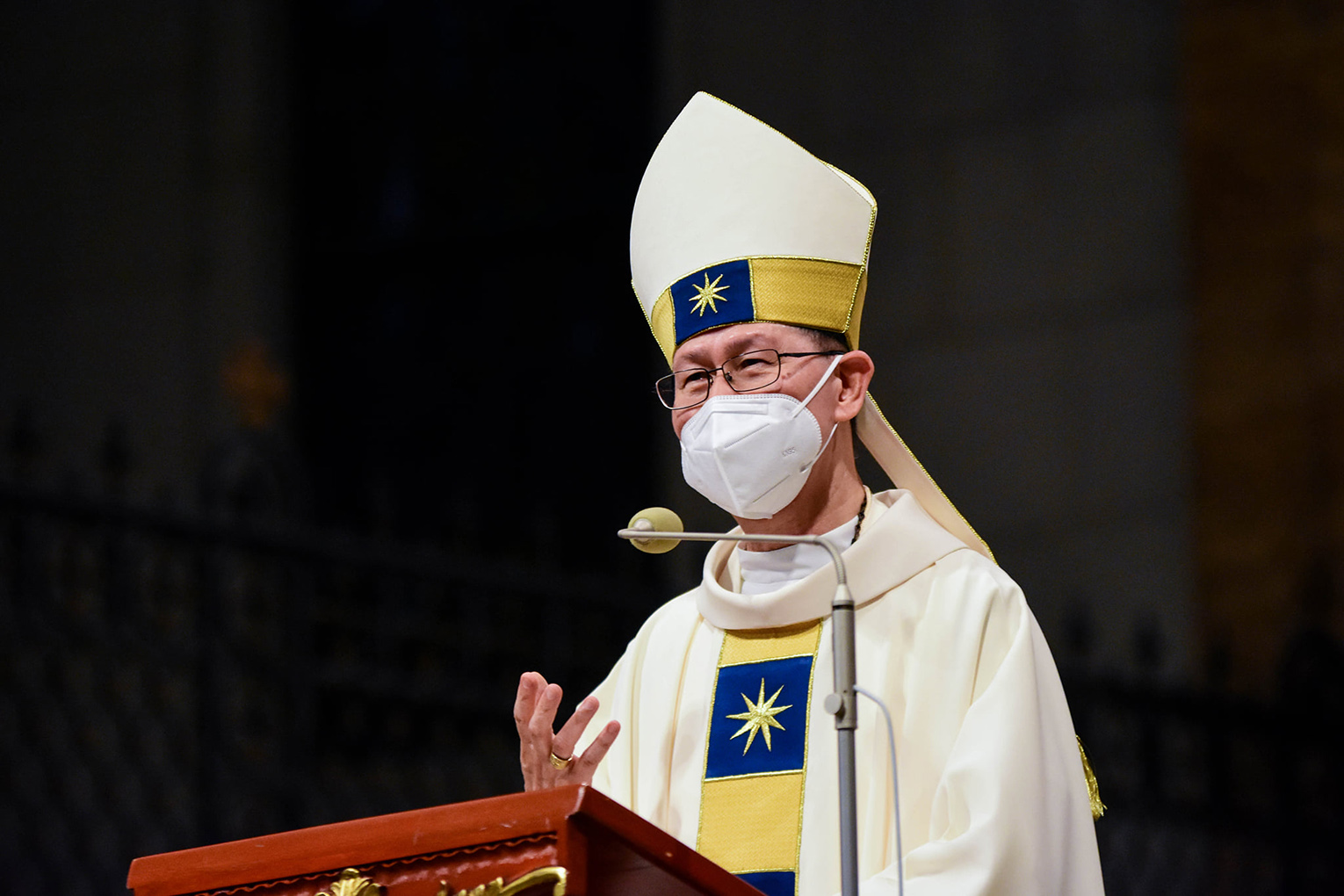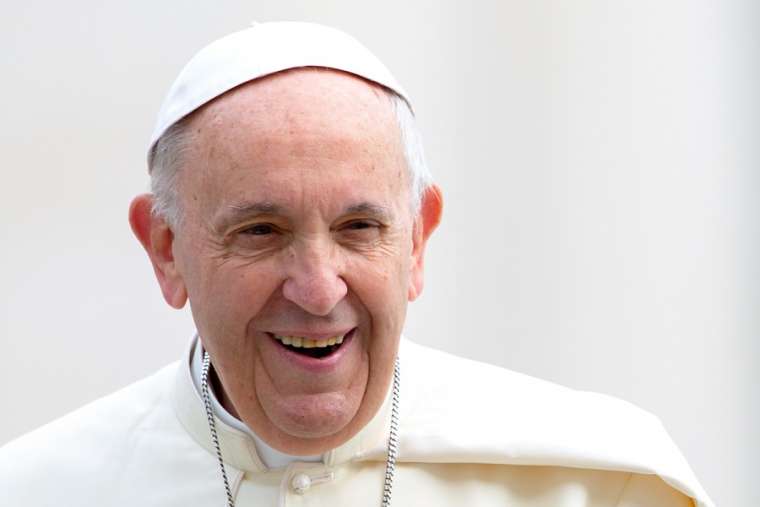“The Spirit of the Lord is upon me. He has anointed me to bring good news to the poor, to proclaim liberty to captives and new sight to the blind; to free the oppressed and announce the Lord’s year of mercy.”
The Mebasser or “messenger of good news”
It has been said that in the Old Testament there were two kinds of prophets: the prophets of doom (their main task was to denounce, although they also called for hope) and the prophets of Grace (their main task was to proclaim the good news of the proximity of the Kingdom of God, although they also would warn those who did not receive it). The prophet of Grace received the name of Mebasser (Hebrew word which means “messenger of good news”).
Prophet Isaiah talks about this kind of prophet, the Mebasser, in chapters 40, 52 and 61 of his work.
- “Go up onto the high mountain, messenger of good news to Zion, lift up your voice with strength, fear not to cry aloud when you tell Jerusalem and announce to the cities of Judah: “Here is your God!”, Here comes your God with might… Like a shepherd he tends his flock: he gathers the lambs in his arms (Is 40: 9-11).
- “How beautiful on the mountains are the feet of those who bring good news, who herald peace and happiness, who proclaim salvation and announce to Zion: “Your God is king!” (Is 52: 7)
- The Spirit of the Lord Yahweh is upon me, because Yahweh has anointed me to bring good news to the poor. He has sent me to bind up broken hearts, to proclaim liberty to the captives, freedom to those languishing in prison; to announce the year of Yahweh’s favor and the day of vengeance of our God; to give comfort to all who grieve; (Is 61:1-2).
Thus, we can see how in chapters 40, 52 and 61, Isaiah describes this kind of prophet: he is the one who climbs on a high mountain to console the people; he is the one whose beautiful feet stand over the mountains; he is the one anointed by the Spirit to proclaim the good news to the poor.
Jesus identified himself with this prophetic model. That is why he is the Mebasser par excellence (Mt 5; Lk 4). On the mount he announced the blessedness of the Kingdom (Mt 5), and in the synagogue of Nazareth he introduced himself as the Mebasser of the poor. This Hebrew word was translated into Greek with the word Evangelium (Gospel) and its derivatives, like “to evangelize” and “evangelizer”. Mark entitles his work about Jesus “Gospel, Good News of Jesus Christ”, with a double purpose: to indicate that Jesus himself is the Gospel, and to express that the Gospel is about Jesus Christ.
To evangelize: to continue the mission of the Mebasser
How good it is to realize that the Church, and within her each one of us, is called to take part in this great project of the “new Evangelization”, continuing the mission of Jesus, the grand Mebasser. It is moving to know that our mission can be described as “proclaiming to our world the good news about God”, and that this proclamation, precisely, is for us men and women of the XXI-cent. -at least for our sub-conscious-, the most awaited news.
We, followers of Jesus, have not been chosen to become in this world “prophets of doom”, to diagnose and denounce the evil around us. We have been chosen to announce the good news that God is near, that He intervenes, that we can be freed from the powers of the devil. In our globalized society, the Church has the opportunity to wrap the world in a net of announcers of the Good News of the Triune God, who listens to the cry of the oppressed, who does not forget his poorer and most abandoned sons and daughters, especially the ones that suffer most and are desperate, and who cares for them; He keeps his covenant with the earth forever. Perhaps, just like Mary, when pondering about ourselves, our communities and institutions, we might ask: “How can this be?”
The “new evangelization”
The Church –in its most recent Synod- has convened us to a “new evangelization”. She has insisted on two things: its novelty and the central role of the Holy Spirit
a) Its novelty: pastoral conversion
This novelty is related to the method, the structures, the attitude and the will to begin a kind of evangelization worthy to be defined as “new”. In Propositio n. 22 of the Synod, we are requested to adopt new methods, to abandon structures of maintenance which do not fit in the present world, and to replace them with structures of mission, adopting different attitudes and style. We are told that to make this possible it is necessary [to undergo] a “pastoral conversion”, a missionary metánonia (change of mind). We have always understood “conversion” as “personal conversion”, but we now understand its structural and communal dimension, which favors the new mission. Thus, we shall be able to tell in the immediate future where pastoral conversion is present, and where it is not. Where it is present, there shall be life: “to grow means to change, and change involves risks, to pass from the known to the unknown.” Where it is not present, there shall be death, death as a result of disobedience.
b) The central role of the Holy Spirit
The Synod also teaches about He who is the main agent of the new evangelization and of our conversion –the conversion just mentioned-: The Holy Spirit!
“Conversion in the Church, just like evangelization, does not come about primarily through us poor mortals, but rather through the Spirit of the Lord… It is not we who are to conduct the work of evangelization, but God, as the Pope reminded us: “The first word, the true initiative, the true activity comes from God and only by inserting ourselves in to the divine initiative, only by begging this divine initiative, will we too be able to become — with him and in him — evangelizers” … We are, however, also convinced that the Lord’s Spirit is capable of renewing his Church and rendering her garment resplendent if we let him mold us… We are confident in the inspiration and strength of the Spirit, who will teach us what we are to say and what we are to do even in the most difficult moments.”
In the tradition of the Occidental Church, the central role of the Holy Spirit, if not completely forgotten, has been reduced to a mere footnote. Nevertheless, we use today a pneumatologic model to understand and organize the Christian mission: “The Spirit witnesses! (Rom 8,14-16)”, the Spirit talks through the prophets; the Spirit is the main character of the mission. We are support characters, secondary characters. We are sent to proclaim the wonders of our God in union with the Spirit.
The Spirit, who is the great protagonist, does not enter the scene only in Pentecost. Together with the Logos, He had a leading role during the Big Bang which sparked creation, He was a protagonist during the process of evolution, and will bring it to its fullness; He does this by interconnecting all things, by creating relations in the universe. We rightly invoke Him “Veni Creator Spiritus” or Spirit of life. In the Pentecost over Mary and Jesus, and subsequently over the Church, the Spirit revealed his definitive mission.
In his first Paschal speech Peter addressed the Jews and the inhabitants of Jerusalem in these terms:
“Indeed what the prophet Joel spoke about has happened: In the last days, God says, i will pour out my Spirit on every mortal. Your sons and daughters will speak through the Holy Spirit; your young men will see visions and your old men will have dreams. In thosedays i will pour out my Spirit even on my servants, both men and women, and they will be prophets… This Messiah is Jesus and we are all witnesses that God raised him to life. He has been exalted at God’s right side and the Father has entrusted the Holy Spirit to him; this Spirit he has just poured upon us as you now see and hear.” (Acts 2: 16-18, 32-33)
Peter hereby describes a world far too new for us (Jean-Luc-Marion), so new and unfamiliar, that if we could penetrate it, we would understand everything. None of the old categories works anymore. In 1916 the poet W. B. Yeats wrote regarding Easter: “Everything has changed, it has totally changed. A terrible beauty has been born.” That first Pope discovered that the Spirit had been poured, not only over those present in the Cenacle, but also over all Israel (“your sons and daughters, your young and old, my servants”). It also affected the pouring of the Spirit over those visiting Jerusalem during those days – coming from different places – Parthians, Medes and Elamites, people from Mesopotamia, Egypt and Cappadocia… (Acts 2,5). “and all of us hear them proclaiming in our own language what God, the Savior, does. (Acts 2,7.11-12). Even more, the expression “all flesh/all mankind” refers to the pouring of the Spirit over the life of the planet, as highlighted by the great theologian Jürgen Moltmann. What is written in the book of Wisdom (1,7) becomes real: “The Spirit of the Lord, indeed, fills the whole world.”
The Pentecost event enables the Church to experience in herself the action of the Spirit of Jesus and the Father, (Lk 24,49), whenever she announces and reveals in words and mighty deeds the Mystery hidden in God; whenever she discovers that she is sent by Him to new places and peoples; whenever she receives the prophetic gift or is protected during persecutions.
Getting involved in the mission of the Spirit
Today we want to understand our evangelizing mission from a pneumatologic perspective. The Spirit of the Lord fills the whole world, but since we do not possess a monopoly over the Spirit, we need to discern and worship His presence in “the others” and in “the other”. Our respect to the Spirit transforms our proclamation into dialogue, because, perhaps the Spirit has something to tell us through other people. True dialogue means entering into the perspective of the other; everyone listening, communicating, and being listened to. Interreligious dialogue takes seriously the beliefs and doctrines of the other. At the same time, the Spirit trains the disciple so that “dialogue” is at the service of “religious proclamation” (testimony), for in true dialogue there are moments of proclamation in which the other part is challenged. Only the genuine “give and take” (“toma y daca”) of the proclamation can sustain dialogue. This is the “missio inter gentes”. And since dialogue transforms everyone, the missio becomes trans-missio.
Through his permanent mission the Spirit unites and reconciles the peoples, making Jesus the head of everything, forming the Body of Christ which is the Church.
The central role of the Spirit never diminishes us, neither us -the Church-, nor humanity, nor the energies of the cosmos. The Spirit pours generously his gifts and charisms, and He has the most spectacular collaboration that we can ever imagine: He has an explicit collaboration in the church, and an implicit collaboration in humanity and in the cosmos. The mission of the Spirit makes us Church; it also makes us humanity, world and cosmos. That is why, when we say that God is to be revealed, we become collaborators of a God who reveals himself in a diversity of ways.
Translation by Fr. Martin Mroz, FDP









